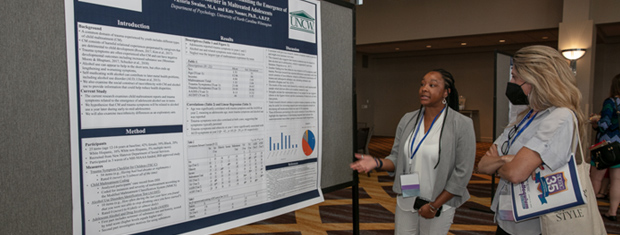




The APSAC Advisor is a peer reviewed quarterly news journal for professionals in the field of child abuse and neglect.
The APSAC Advisor provides succinct, data-based, practice-oriented articles that keep interdisciplinary professionals
informed of the latest developments in policy and practice the field of child maltreatment. It is designed to highlight
best practices in the field and publish original articles and current information about child maltreatment for professionals
from a variety of backgrounds including medicine, law, law enforcement, social work, child protective services, psychology,
public health and prevention in the U.S.
 If you wish to learn more about submitting an article to the Advisor, please click here.
If you wish to learn more about submitting an article to the Advisor, please click here.
This library contains Advisor issues dating back to the first issue in 1988. The most recent issue appears at the top.
Scroll down to select past issues by year and issue number. Once a publication appears in the box, you
can use the Enlarge button to open the document in a new window or tab (depending on how your browser is set up).
This will allow you to view the document with larger print.
To print a document, first use the Enlarge button to open the document in a new window or tab. Then use your browser's Print command.
To return here from a new tab, close the tab. To return from a new window, click your browser's Back button.
In the listing below, click on a year and issue number to see the articles in that publication.
2005 Number 4
Child Forensic Interviews After Crawford v. Washington:Testimonial or Not?
With the issuance of Crawford v. Washington by the United States Supreme Court on March 8, 2004, widespread confusion and concern swept through the child protection communities in regard to one issue: Are forensic interviews of children “testimonial statements” according to Crawford, thus requiring the child to take the witness stand?
Introduction to CAPTA Guidelines, 2003 Amendments
In extending the federal Child Abuse Prevention and Treatment Act (CAPTA) by passing the Keeping Children and Families Safe Act of 2003 (Public Law 108-36), Congress took steps to address an issue covered in other, earlier CAPTA reauthorizations. That issue concerns the rights of parents accused of child maltreatment.
Guidelines for Implementing the Child Abuse Prevention and Treatment Act (CAPTA) 2003 Amendments
Intrusion into family life is sometimes necessary to save lives and protect children. Inappropriate intrusion, though, is unethical, often harmful, and may be illegal. Child protective services (CPS) workers who investigate reports of child maltreatment need guidelines for when and how the state’s intrusion into family life is appropriate and necessary.
The purpose of Journal Highlights is to alert readers to current literature on child abuse. Selected articles from journals representing the variety of disciplines reflected in APSAC s membership are presented in the form of an annotated bibliography.
APSAC Advisor 17(4): Full Issue